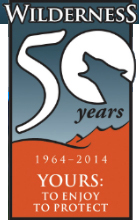Happy Anniversary Wilderness!
Did you ever stop to think how lucky we are to have wilderness areas? The Boundary Waters Canoe Area could have become a Lake Vermillion or Brainerd Lakes Area had it not been for the Wilderness Act signed by President Lyndon B. Johnson on September 3, 1964.
The area that makes up the BWCAW is land that was set aside to benefit people. It isn’t a land of lakes reserved for the wealthy who can afford to buy up large tracts of lakeshore and block access for others but it is for everyone. The fact the Boundary Waters exists is why I can live at the end of the Gunflint Trail on the edge of the wilderness. I can help anyone who wants to experience this wilderness do so by providing equipment and reserving them a permit.
The benefits of visiting a wilderness area aren’t just for troubled youth or stressed out adults. Time in the wilderness benefits everyone because people who take time to visit a wilderness area experience a change for the better. You can’t help but change when you are surrounded by beauty and solitude like is found in the Boundary Waters. I know I change for the better and the people I interact with after I’ve been in the wilderness benefit too.
On this special anniversary I encourage you to think of your favorite wilderness areas and be thankful for them I know I am forever thankful for the Wilderness Act.

On September 3, 1964 President Lyndon B. Johnson signed into law the Wilderness Act. This historic bill established the National Wilderness Preservation System (NWPS) and set aside an initial 9.1 million acres of wildlands for the use and benefit of the American people. Over the past 50 years, and as a result of America’s support for wilderness, Congress has added over 100 million acres to this unique land preservation system. The 1964 Wilderness Act defines “Wilderness” as areas where the earth and its communities of life are left unchanged by people, where the primary forces of nature are in control, and where people themselves are visitors who do not remain.

Leave a Reply
You must be logged in to post a comment.